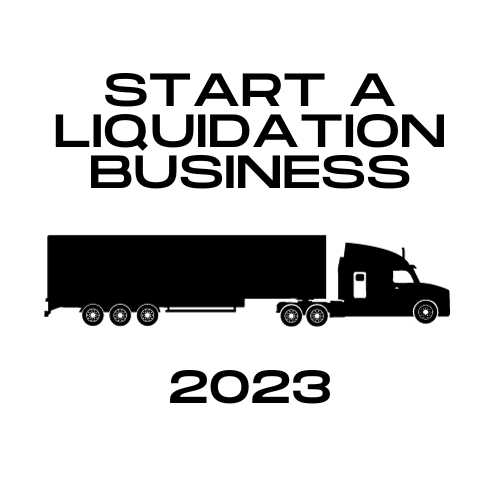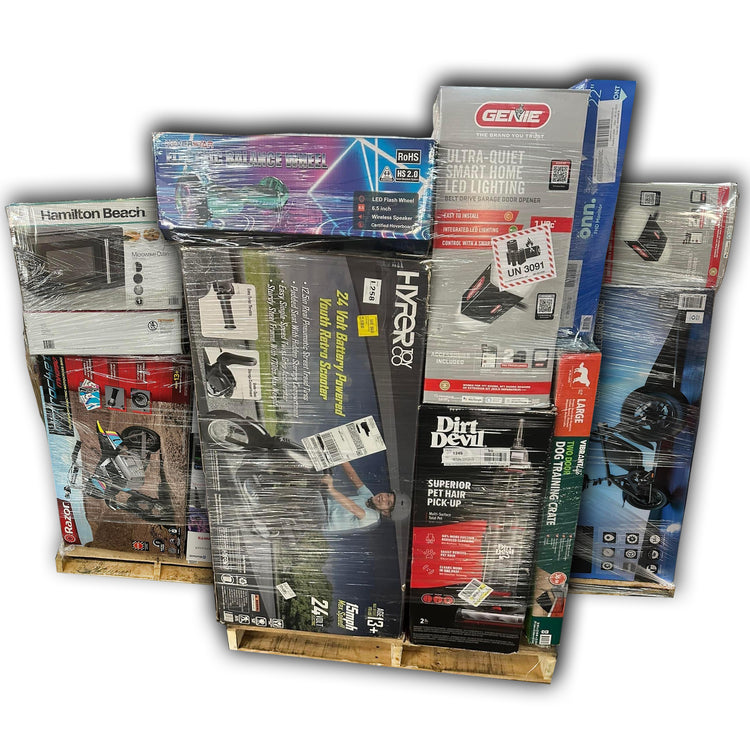How to Start a Resale Liquidation Business in 2023

Introduction You have a dream: to forge your own path in the world of business, leveraging your people and product skills. A resale liquidation business offers this unique opportunity. If you're considering different business ideas, understanding what resale liquidation is and how to start it is crucial. This article will guide you through the essentials of turning your entrepreneurial dream into reality.
Understanding the Liquidation Business
A resale liquidation business involves purchasing merchandise, typically from suppliers through professional brokers, and reselling it for a profit. The allure of being your own boss, controlling your schedule, and selecting products makes this business model attractive.
The First Steps: Understanding Wholesale vs Liquidation
Before diving into the business, it's important to grasp the differences between wholesale and liquidation. Wholesale involves buying new products in large quantities at a fixed price. Liquidation, however, deals with goods that may be out of season or overstocked, often allowing for price negotiation and deeper discounts.
Conducting Market & Competitor Research
Successful business inception requires thorough market and competitor research. Understanding what sells in your area and identifying gaps that you can fill are critical steps. Knowing your competitors' offerings and differentiating your business from theirs is equally important.
Planning and Starting Small
The liquidation business demands a careful balance of resources. Start small, using online platforms and local markets for sales, and avoid overstretching your finances or inventory.
Obtaining Necessary Licenses Legal compliance is key. Obtain a business license for local operations and a resale license for tax purposes. This not only ensures legal operation but also avoids unnecessary tax burdens.
Joining Online Liquidation Communities Engage with online liquidation communities for insights and support. These groups offer valuable experiences and advice that can guide your business decisions.
Managing Your Inventory and Resources Inventory management is crucial. Avoid overbuying and focus on maintaining control over your business finances and storage space.
Choosing the Right Products Listen to your community to understand their needs. Choose products that are in demand and can distinguish your business in the market.
Sourcing Your Liquidation Products Selecting the right source for your products is vital. Engage with established liquidation brokers like Select Liquidation for reliable sourcing. Be cautious and research your suppliers thoroughly.
Creating a Business Plan A solid business plan lays the foundation for success. It should include market analysis, product lines, marketing strategies, and a budget for inventory and operational costs.
Preparing Your Storage Space Organize your storage space efficiently. Use inventory management software to keep track of your stock and ensure quick access to products.
Selling Your Liquidation Inventory Explore various selling avenues, including in-person sales and online platforms. Understand your community's needs and adapt your sales strategy accordingly.
Photographing and Presenting Your Product Effective product presentation is key, especially online. Ensure your products are well-photographed, highlighting any unique features or defects.
Providing Excellent Customer Service Customer service can make or break your business. Be responsive, honest, and willing to resolve issues to build customer trust and loyalty.
Conclusion Starting a resale liquidation business is an exciting venture that requires careful planning, research, and management. With the right approach, you can build a successful business that aligns with your dreams.
FAQs
-
What are the key differences between wholesale and liquidation? Wholesale involves buying new products in bulk at a fixed price, while liquidation deals with overstocked or out-of-season items, often allowing for price negotiations.
-
Why is market research important in starting a liquidation business? Market research helps you understand customer needs and identify product gaps, ensuring you invest in merchandise that has a demand.
-
What licenses are necessary for a liquidation business? A business license for operating in your locality and a resale license for tax purposes are essential.
-
How can I source products for my liquidation business? Partnering with reliable brokers like Select Liquidation and conducting thorough research on suppliers are effective ways to source products.
-
What role does customer service play in the liquidation business? Excellent customer service builds trust and loyalty, ensuring repeat business and a strong reputation.
